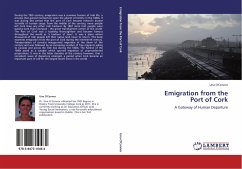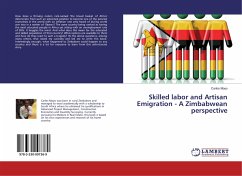
Emigration from the Port of Cork
A Gateway of Human Departure
Versandkostenfrei!
Versandfertig in 6-10 Tagen
52,99 €
inkl. MwSt.

PAYBACK Punkte
26 °P sammeln!
During the 19th century, emigration was a common feature of Irish life, a process that gained momentum upon the advent of Famine in the 1840s. It was during this period that the port of Cork became Ireland s busiest turnstile of human cargo. From the middle of the century, more people left Cork than any other Irish harbour. By 1867 more Irish people were leaving Cork than Liverpool - the great transhipment centre of the world. The Port of Cork was a bustling thoroughfare and became famous throughout the world as a harbour of tears . It was a place where thousands of Irish people left their nat...
During the 19th century, emigration was a common feature of Irish life, a process that gained momentum upon the advent of Famine in the 1840s. It was during this period that the port of Cork became Ireland s busiest turnstile of human cargo. From the middle of the century, more people left Cork than any other Irish harbour. By 1867 more Irish people were leaving Cork than Liverpool - the great transhipment centre of the world. The Port of Cork was a bustling thoroughfare and became famous throughout the world as a harbour of tears . It was a place where thousands of Irish people left their native land never to return. This book examines emigration from the port of Cork during the nineteenth century. Transportation of convicts inaugurated migration at the dawn of the century and was followed by an increasing number of free migrants sailing to Canada and across the Irish Sea during the 1820s. The Famine of the 1840s acted as a catalyst which spurred migration of unprecedented proportions. It was in the latter decades of the century however, that a consistent wave of departure emerged, a period when Cork became an important port of call for the largest steam liners in the world.












